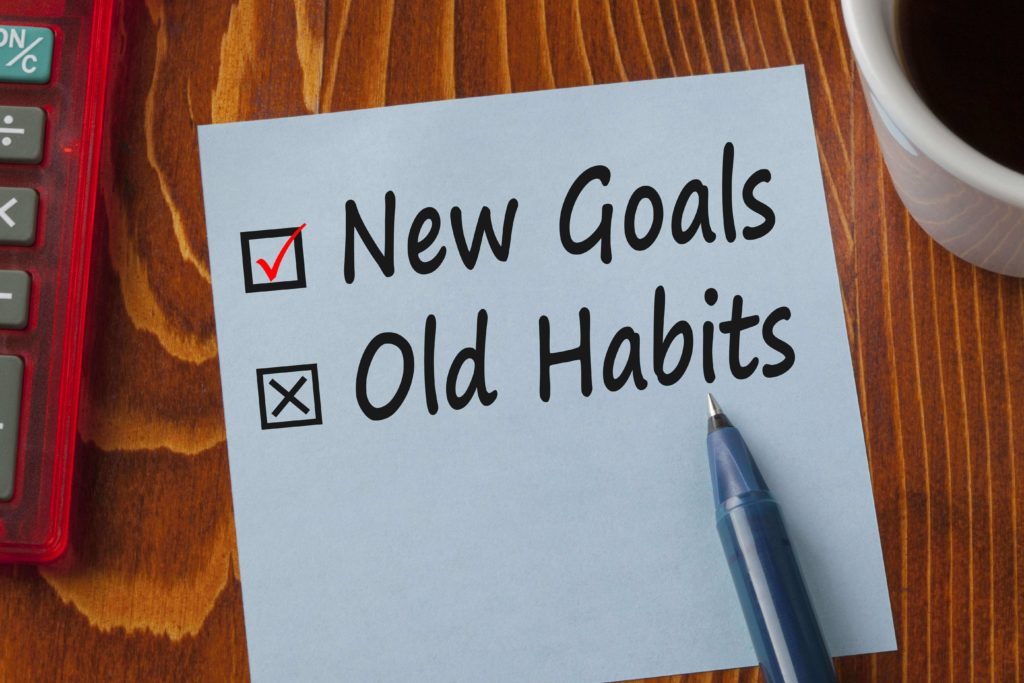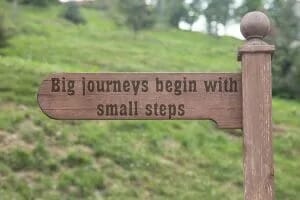Does Drug Rehab Work?
 Addiction to drugs or alcohol is a chronic, but treatable, disorder. Research shows that completion of a licensed rehabilitation program gives addicted individuals their best chance for successful long-term recovery.
Addiction to drugs or alcohol is a chronic, but treatable, disorder. Research shows that completion of a licensed rehabilitation program gives addicted individuals their best chance for successful long-term recovery.
Unfortunately, only about 10 percent of the millions of Americans age 12 or over with a substance use disorder (SUD) receive needed treatment in a given year, according to the most recent National Survey on Drug Use and Health.
Ensuring more people get the treatment they need means overcoming the stigma of addiction, as well as increasing availability and understanding of treatment resources. Once addicted individuals are in a rehab program, it is vital they remain in the program for an adequate period of time. Studies indicate that clients who remain in rehab for at least 90 days have the most positive outcomes.
What is Drug Rehab?
Rehab is short for rehabilitation treatment center, which provides residential recovery programs for those struggling with substance use or other mental disorders. Typically, patients stay in residence for 30 or more days.
The program may include:
- Medically monitored detoxification
- Individual, group, and family therapy
- Medication-assisted treatment
- 12-step or other recovery support groups
- An aftercare program.
Residential programs differ from outpatient programs, where clients live at home during recovery. Outpatient programs may serve as the primary level of care, or as a follow-up to residential treatment.
Studies have found that clients in residential treatment are nearly three times as likely to complete treatment as those in outpatient treatment.
Addiction Treatment Statistics
Addiction is a primary, chronic disease characterized by a compulsion to use mind-altering substances or engage in certain behaviors despite negative consequences. Regular use of drugs or alcohol rewires the brain, causing dysfunction in the pleasure, reward, and motivation centers, making it difficult for users to stop on their own.
Although SUD has been recognized as a chronic disease for several decades, the misplaced belief by many that addicted individuals should be able to stop using on their own remains. The resulting stigma prevents many from seeking the help they need.
Statistics cited by the National Institute on Drug Abuse (NIDA) indicate:
- Only about 10 percent of the 20.3 million with SUD in the U.S. receive treatment
- Less than 10 percent of the 7.7 million people with a substance use disorder and accompanying mental disorder receive treatment for both
- Almost 70,000 people die from accidental drug overdose each year
- Over 80,000 people die from alcohol related causes each year
The low treatment statistics contrast sharply with other chronic diseases that do not carry the same stigma as addiction and mental illness. For example, of the 29 million people in the U.S. with diabetes, 85 percent receive treatment.
Relapse is Not a Sign of Failure
 As with any chronic disease, relapse is not uncommon on the road to addiction recovery. It should not be seen as a sign of failure, but rather a part of the recovery process. Relapse may indicate a need to strengthen coping skills, modify the treatment plan, strengthen the support system, and re-evaluate recovery goals.
As with any chronic disease, relapse is not uncommon on the road to addiction recovery. It should not be seen as a sign of failure, but rather a part of the recovery process. Relapse may indicate a need to strengthen coping skills, modify the treatment plan, strengthen the support system, and re-evaluate recovery goals.
Addicted individuals who complete a quality drug rehabilitation program have a relapse rate of 40-60 percent. This is similar to the relapse rate of other chronic disorders like diabetes (30-50%), hypertension (60-70%), and asthma (50-70%), according to the NIDA. Relapse of any chronic disease is likely if the individual ceases to comply with their treatment plan.
After completion of a professional alcohol or drug treatment program, regular attendance at support group meetings improves long-term outcomes. Participation in a support group helps those in recovery develop a sober social network, increases motivation and accountability, reduces negative emotions, and increases a sense of hope and well-being.
Measuring Rehab Success Rates
There is no uniform standard used by drug rehab centers to measure success. Some rehabs consider success to be the completion of the program, while others consider follow-up statistics. Clients may receive follow up for a few months after treatment, while others may be followed for years.
The Hazelden Betty Ford Foundation analyzes patient addiction treatment outcomes by measuring the length of sobriety, quality of life, and aftercare compliance.
Follow up surveys find successful recovery is greatest for those who:
- Completed at least 90 days of a residential program
- Continue with individual counseling
- Continue to participate in 12-step or another support group program
- Have a strong, sober support network
- Reside in a sober environment
- Practice a healthy lifestyle, including regular exercise, good nutrition, and stress management
How to Choose a Quality Rehab
Make sure to research rehab centers you are considering beforehand, including licenses and accreditations. Ensure they are accredited by the Joint Commission, which indicates the facility and staff adhere to the highest levels of quality and performance standards.
Be wary of treatment centers that promise extremely high success rates. As part of your research, the Hazelden Betty Ford Foundation suggests you ask the following:
- What variables and which patient populations are you measuring?
- How are you defining “success” – Length of abstinence from alcohol and other drugs? Improved physical health? Improved mental health? Other quality of life indicators?
- How was the data collected?
- Over what time period?
- How many patients are surveyed and what is the response rate?
- What type of substance abuse rehab program did patients participate in Residential or outpatient? Evidence-based behavioral therapies?
It is also important to determine whether the rehab treats co-occurring disorders along with the SUD. Substance use and mental disorders frequently co-occur, meaning they are present simultaneously, and both must be treated for successful recovery. As noted above, almost 40 percent of those with a SUD have a co-occurring mental disorder, yet less than 10 percent receive treatment for both.
If you or a loved one has a substance use disorder with or without an accompanying mental disorder, reach out for help. Remember, addiction is a chronic disease, just like diabetes or asthma, and you have a right to treatment. Talk to your physician or an addiction specialist for guidance.
Midwest Recovery Centers is an extended care treatment facility, providing intensive recovery treatment for addiction as well as other life problems. Utilizing a 12-step approach, we focus on recovery of the whole person – mind, body, and spirit. Contact us today to start your recovery journey.
Reviewed and Assessed by
Taylor Brown, B.A.Com., MAADC II
Tim Coleman, M. of Ed.
Staffed 24 hours a day, 7 days a week.
Medical
 Midwest Recovery Centers believes strongly in a client-centered approach. Substance Use Disorder is not what it was 5 or even 2 years ago. The substances on the street are constantly changing and so are the number of contraindications and fatal threats that substance use imposes on the person suffering. Our Medical team continues to stay up to speed with new advances of evidence-based approaches in treating those with both substance use disorder as well as their co-occurring mental health diagnosis. There are many varying pieces to each client’s situation when it comes to tackling the puzzle of a medical detox, and each step in the treatment planning is carefully selected, reviewed, and communicated for the best possible outcome of each client. We understand that consideration of the medical history, family history, past trauma, past and current substance use are all key indicators to most effectively give each client the best chance at developing a recovery process. Each client may present with a different scope of medical needs whether it’s their blood work or the most effective medications for them. Midwest Recovery Centers is proud to have the finest medical team to meet these individual and specific needs of each client that walks through our doors.
Midwest Recovery Centers believes strongly in a client-centered approach. Substance Use Disorder is not what it was 5 or even 2 years ago. The substances on the street are constantly changing and so are the number of contraindications and fatal threats that substance use imposes on the person suffering. Our Medical team continues to stay up to speed with new advances of evidence-based approaches in treating those with both substance use disorder as well as their co-occurring mental health diagnosis. There are many varying pieces to each client’s situation when it comes to tackling the puzzle of a medical detox, and each step in the treatment planning is carefully selected, reviewed, and communicated for the best possible outcome of each client. We understand that consideration of the medical history, family history, past trauma, past and current substance use are all key indicators to most effectively give each client the best chance at developing a recovery process. Each client may present with a different scope of medical needs whether it’s their blood work or the most effective medications for them. Midwest Recovery Centers is proud to have the finest medical team to meet these individual and specific needs of each client that walks through our doors.
Clinical
 When it comes to the therapeutic treatment of patients with substance use disorder, Midwest Recovery Centers believes in a client-centered approach guided by evidence-based practices. Substance use disorder has been identified by the American Medical Association as a disease, but because addiction is a disease that impacts behavior, treatment of this disease is often heavily focused on modifying behaviors and thoughts as well as establishing a new way of life. We place a strong emphasis on educating patients about this chronic illness and empowering them to practice treating it as such. Our clinical team is composed of leading experts in the field. We believe in having a staff as diverse as the clients we serve; from Licensed Professional Counselors to Licensed Clinical Social Workers, our staff is highly trained and educated in not only addiction but the mental health issues and life circumstances that often accompany it. Many of our clinicians have their own personal experience in long term recovery which lends them to an even better understanding of what our patients are experiencing. Our staff is highly skilled in choosing the most effective therapeutic modality for each client’s needs, to give them the best chance of securing the recovery process that will change their lives. Our clinical team understands that this is a family disease. This is why clinicians will offer weekly updates to families as well as concrete tools for families to utilize as they journey through this illness with their loved one. Those tools will be offered by the patient’s individual clinician as well as at our free Family Night on the first Wednesday of each month, offered to anyone in the community.
When it comes to the therapeutic treatment of patients with substance use disorder, Midwest Recovery Centers believes in a client-centered approach guided by evidence-based practices. Substance use disorder has been identified by the American Medical Association as a disease, but because addiction is a disease that impacts behavior, treatment of this disease is often heavily focused on modifying behaviors and thoughts as well as establishing a new way of life. We place a strong emphasis on educating patients about this chronic illness and empowering them to practice treating it as such. Our clinical team is composed of leading experts in the field. We believe in having a staff as diverse as the clients we serve; from Licensed Professional Counselors to Licensed Clinical Social Workers, our staff is highly trained and educated in not only addiction but the mental health issues and life circumstances that often accompany it. Many of our clinicians have their own personal experience in long term recovery which lends them to an even better understanding of what our patients are experiencing. Our staff is highly skilled in choosing the most effective therapeutic modality for each client’s needs, to give them the best chance of securing the recovery process that will change their lives. Our clinical team understands that this is a family disease. This is why clinicians will offer weekly updates to families as well as concrete tools for families to utilize as they journey through this illness with their loved one. Those tools will be offered by the patient’s individual clinician as well as at our free Family Night on the first Wednesday of each month, offered to anyone in the community.
Our Origin Story
I began Midwest Recovery in honor of my mother, Betty Lou Wallace, who taught me responsibility in life and sobriety.
Mom was born, raised, and lived most of her life in Missouri, a state I'm still proud to call home. She had five children. The youngest were my older brother Don and me.
We knew that the disease of addiction ran in the family, but it wasn't until Don and I grew older that we realized we were falling into addictive patterns. Through it all, Mom was supportive of her children but firm about one principle: whether the disease was inherited or developed through your environment, you were responsible for your recovery from addiction.
"I will be supportive of your recovery but I will not enable your addiction," she was fond of saying.
Ultimately, I stayed sober from 1990 to 1997, when I relapsed. With Mom's support, I was able to get sober again in 2002. Tragically, Don was not so lucky. He passed away in 2005 from complications of an injury and continued addiction.
Mom wanted no parent to suffer from the sorrow and anguish of losing a child, so in 2002, she helped me establish my first treatment center business.
As Mom grew older, she shared with me some lessons she had learned through her affiliation with Al-Anon, a support group for family members of loved ones struggling with addiction. She asked me to stay clean and sober one day at a time and to use the lessons I learned in my own recovery to help others who were suffering.
In 2008, Mom passed away from throat cancer, one day after my six year sober anniversary. I still remember that one of the last times we spoke, she told me she was proud of my recovery.
Mom would be so happy to know that myself, our partners, and our team are carrying on her legacy in her home state. I don't know if my own recovery process would be intact without her and the lessons she shared. So much of what we share with our clients at Midwest began with Betty Lou.
Above all, Mom imparted several teachings that I carry with me every day: that people are inherently good, and if they fall into addiction, this makes them sick, not bad. She taught me to be patient, tolerant, loving, and kind to myself and to others.
Most of all, she taught me that recovery works if we are able to be honest with ourselves about our own behavior. That’s what she helped me accomplish and that’s what we strive to accomplish with every Midwest client.
On behalf of Betty Lou, I thank you for your interest in Midwest Recovery.
Jeff Howard




